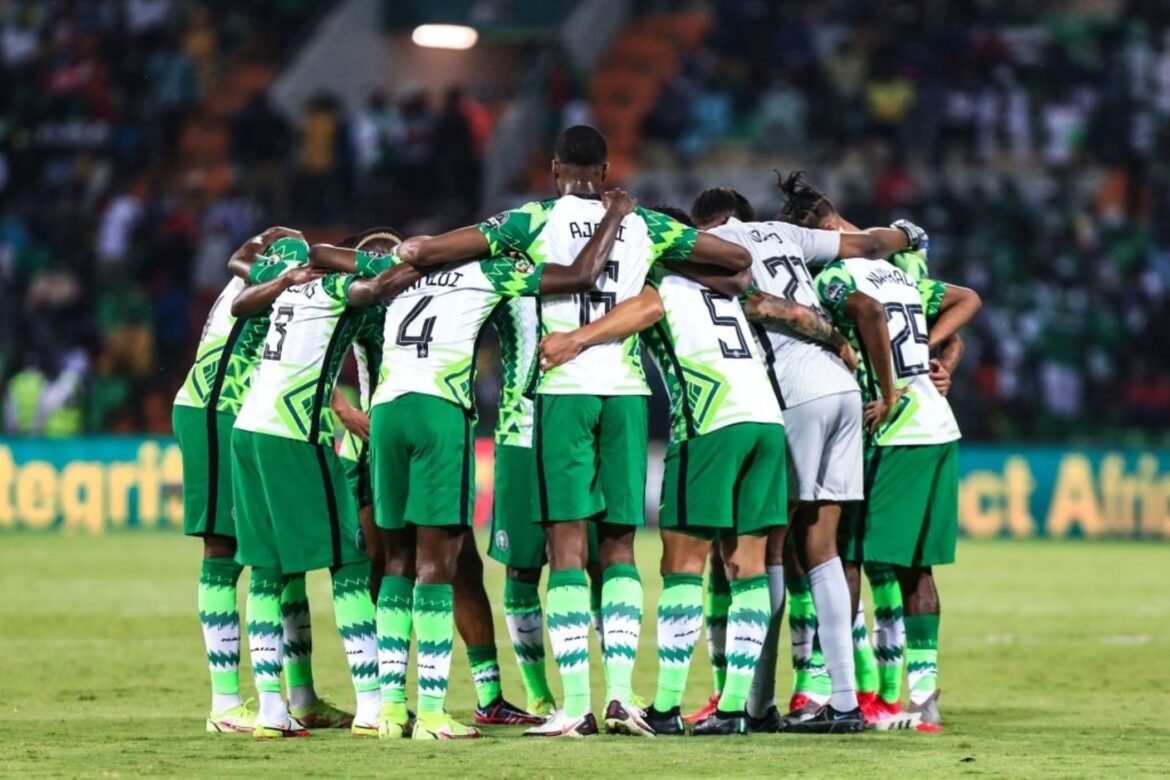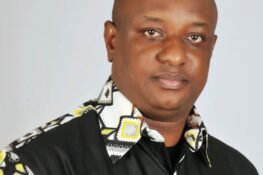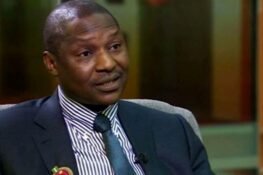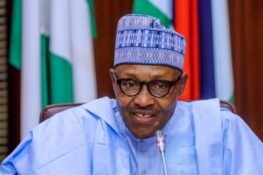Nigeria’s failure to make the World Cup in Qatar is an emphatic statement about us.
We are talented, but can be mediocre. We are industrious, but are often unprepared.
We put in too little, but expect too much.
We like it easy, but life is hard. And we can be rowdy, instead of being sober in failure.
Self-evaluation is ineluctable for development.
Except one is able to look inward and reflect positively on one’s shortcomings, improvement is elusive.
For a nation that fails to learn lessons, harnessing potentials is an uphill battle.
Nigeria is punching far below its weight from every angle.
Our extreme valuation of our worth and ability is an undoing, and our inability to be at the top, where we ought to be, reflects a bloated sense of capability.
Forgetting the undeserving carnage in Ukraine, rarely is any nation weaker and more fragile than Nigeria
To many Nigerians, their nation is the giant of Africa.
While life is better in many other African countries, we have settled into that comfortable lie about our level of development.
How can we be the giant of Africa when in 2022 alone, no nation in the continent has been more devastated than Nigeria?
Forgetting the undeserving carnage in Ukraine, rarely is any nation weaker and more fragile than Nigeria.
The fundamentals of progress weigh heavily against Nigeria than any other country in Africa.
The foundations of development are so shaky that Nigeria will be a fast falling giant, if it ever was one.
In the last week alone, terrorists, bandits, armed robbers – whatever we want to call them – have shown us how they have become the law.
Not only did they take over the operations of a major airport, they also attacked the rail system connecting the national capital – turning the nation’s centre of security infrastructure in Kaduna into a bandit camp.
In the ensuing period, Nigerians can no longer say they have a safe means of travel.
The road, rail and air have been hijacked as means of movement, and our extensive military and law enforcement infrastructure are of no use.
Not even the president, Mr. Mohammadu Buhari, or his party, the APC, could utter words that instill confidence in the government.
Pile that on top of the three emerging problems of 2022 that I dwelled on two weeks ago in Three Serious Problems, But Who Cares?
These are fuel scarcity, the collapse of electricity supply and the shutdown of public universities, problems which, sadly, are still extremely painful; but are no longer the extreme pain.
Back to football, our national pastime.
Passions run high when it come to the game of football, such that some people have stabbed and killed over games in the foreign leagues.
A country so madly in love with the sport would put everything it has into winning because in football, Nigerians drown their sorrow and find national unity.
Its desire to be at the top of the game with a winning team in the World Cup should have been supported with a winning mentality, good vision, hard work and attention to detail.
The greatest sporting event in the world is not just for the talented, it is also for the pragmatic and planner.
No place is guaranteed for any nation but Nigeria behaved is if we were already qualified, perhaps because we have been in six out of the last seven championships.
As Nigeria faced Ghana in the final match, there was no reason to assume that Ghana would not qualify at Nigeria’s expense.
But our football administrators were careless, care free and assuming.
It was going to be a tough game. But how did Nigeria prepare?
Three months before the qualifier, the Nigerian Football Federation (NFF) decided it was time to sack the national coach, Gernot Rohr, who had been at the helm for five years and had gradually improved the team.
In his place, Portuguese Jose Peseiro was named as the new coach, under an initial two-year contract.
“The Executive Committee endorsed a proposal for the appointment of Jose Peseiro as the new Head Coach of the Super Eagles,” a statement from the Nigerian Football Federation (NFF) read just before the African Nations Cup began in Cameroon.
While this sounded like a plan, it was never one, because Peseiro would never start the job.
Former player and coach, Augustine Eguavoen, was initially appointed to lead the team to the Africa Cup of Nations (AFCON) before returning to his role as the country’s technical director.
Although Nigeria started with bright sparks, Tunisia quickly dimmed the light and Nigeria did not go far in the Nations Cup. The dismal failure at AFCON should have served as a warning signal.
Strangely, Eguavoen was given promotion for failure, and asked to manage the national team into the World Cup. The contract with Peseiro was shredded.
While a case can be made for home-brewed coaching manpower, it just so happens that sports has no respect for national quota or representation.
Nations go for results.
If the issue was with paying a foreign coach, Nigeria now stands to lose billions of naira in marketing income from being out of the World Cup.
Besides, a period of grooming would have been appropriate, at least one year ahead, instead of throwing a difficult task at Eguavoen and his team at the last minute.
There was absolutely no reason for Eguavoen to be given the task of qualifying Nigeria for Qatar by football administrations when he had just failed in the previous assignment in Cameroon.
There was hardly any merit in the reversal of the contract with Peseiro. When his selection was announced, NFF spoke glowingly about the credentials of the pick.
NFF Vice President, Shehu Dikko, beamed: “He has coached across the world, in Asia, in Europe, South America, in Africa. He has worked with big coaches like (Jose) Mourinho and (Carlos) Queiroz, coached at a big club like Real Madrid, coached big players and small players, coached in the World Cup qualifiers, UEFA Cup, UEFA Champions League and so on.”
So what happened? Why did the NFF back out of its own decision? We may never know the answer, but we know the result.
In the first leg, Ghana were the better team and Nigeria was only fortunate to end the game goalless. Most Nigerians then assumed Nigeria would qualify in the second leg in Abuja. As someone put it, “all we needed was just a goal, how difficult is that?”
Ghana came prepared. They drew the first blood. As soon as they did, the Super Eagles were transformed. The next 10 minutes or so were the best the Eagles played. An equalizer followed through a penalty kick and the game was even.
The Super Eagles then struggled through the rest of the match, clueless, disoriented and confused like a flock of sheep without a shepherd.
What could Eguavoen do? With not much of a strategy in place, he launched his older reserves.
Odion Ighalo and Ahmed Musa, past their prime, were mandated to rescue Nigeria – but their tired and worn legs were hardly moving.
Nigerians waited and waited, until they were put out of their misery by the final whistle.
Nigeria crashed out of the World Cup. Nigerians went berserk at the stadium. Rioters broke whatever was movable. Our primitive anger was on TV for the world to see.
Eguavoen then left the job he should not have been given.
There would not be an inquisition. We will not try to learn lessons; but will repeat the mistakes in the future.
We should ask ourselves though, at a time like this, why we can’t do things better. What is it about us that rejects improvement? Nigeria’s best outing at any World Cup remains the first in 1994.
Many of those who lead football, as those who lead other spheres of Nigerian life, are corrupt and greedy elites who are in it for what they will get
Since then, it has been a downward spiral.
We fail to plan and allocate resources properly. As they say, to fail to plan is to plan to fail.
Gernot Rohr called himself the coach with the longest unpaid salary in the world. It could be true. Nigerian workers also go for months working with collecting salaries.
We are wasteful.
Nigerians have spent more than $28 billion on foreign education in 10 years, and $1 billion per year on medical tourism.
We do not take the time to develop local capabilities and capacities needed to excel and grow. But we want instant success. Our microwave mentality takes success even farther away from reach.
Many Nigerians have become mere dreamers, who do not back up wishes with substance and preparation.
That is why instead of imbibing the virtues of hard work, many of our young people expect overnight success.
A culture of Yahoo-Yahoo boys and Hushpuppi has displaced long and patient upward mobility.
Many of those who lead football, as those who lead other spheres of Nigerian life, are corrupt and greedy elites who are in it for what they will get.
While angry fans destroyed facilities at the Moshood Abiola Stadium in Abuja, I wondered how more foolish they could be.
They were further enriching those behind the loss.
There will be new contracts to repair the stadium. And another cycle of corruption.
Nigeria is in a hopeless cycle of failure.
Almost beyond redemption.








